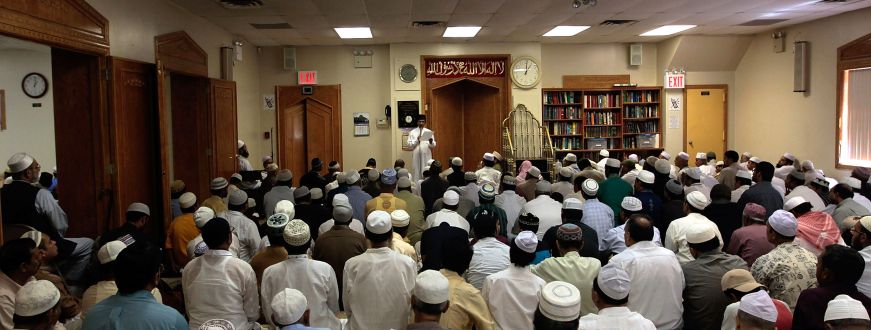LONDON – New measures by British government may include asking Muslim imams to deliver sermons in English, rather than Urdu and Arabic, to encourage inclusion of Muslim youth and fight radicalization.
“If imams are speaking in another language it makes it far harder to know if radicalization is taking place,” a senior Government source told The Daily Telegraph on Monday, March 13.
The source said that the counter-extremism taskforce is working on the plans amid concern that preaching in foreign languages enforces divisions between Islam and mainstream British society and can foster radicalization.
Currently, the measures of the counter-extremism proposals are being prepared, after the initial strategy was published in October 2015.
With the exact measures are yet to be finalized, one source said tougher licensing rules for foreign preachers was being considered.
The expected new regulations have been initially welcomed by some British Muslims.
“I welcome the idea. It is much needed in the Muslim communities,” Nichola Taylor, a British Muslim, told AboutIslam.
“Muslim youth feel that they are forgotten because the elders in the mosque are far removed from them in mindset and culture and the British authorities and some of the British public see them as outsiders even though they are British.
“This step will help them to understand Islam as it supposed to be whilst keeping their British yet Muslim identity,” Taylor added.
Though welcoming the decision, Tarek Ezzat, a British Muslim currently residing in Walsall, West Midlands, stressed that change should come from within the Muslim community.
“Ideally, reform should come from within the Muslim community. British Muslims must be proactive to address the serious problems we face today, work together on solving them and not put our heads in the sand,” he told AboutIslam.
Ezzat warned that using Urdu or Arabic in sermons is a serious problem which has led to “alienation among Muslim youth in Birmingham and elsewhere.”
“The language barrier at the mosque is part of the problem young Muslims face, in addition to cultural barriers. Preaching in English in UK mosques therefore makes perfect sense to help solve this problem, and can have several positive advantages when implemented in the right way,” he said.
“First, Imams would be more able to reach out to the youth and become more relevant to their daily issues and concerns. This would allow young Muslims to better understand Islam, and how it relates to the contemporary world of today and to their daily lives, and thereby become more integrated while at the same time continue to grow in their path as practicing Muslims.
“English sermons and speeches may help Muslims unite, rather than being divided by language and ethnicity (Pakistani, Bengali, Somali, Arab, Turkish, … etc.) as is currently the case in many places in the UK.”

Old Debate
Debate about whether imams, who lead prayers at mosques, should use English, has been making headlines for more than a decade.
A survey of 300 mosques in 2007 found that just 8 per cent of imams were born in the UK and only 6 per cent of them spoke English as a first language.
The Tory 2015 election manifesto promised to “confront and ultimately defeat” extremism and make protecting Britons their “overriding priority”.
The document pledged to “tackle all forms of extremism, including non-violent extremism, so our values and our way of life are properly promoted and defended”.
In a speech by Prime Minister Theresa May before the 2015 general election, the then home minister set out a series of “bold” measures that could be adopted in order to counter the so-called “home-grown extremism”.
“Everybody in our country is equal and everybody is free to lead their lives as they wish. But our society does not just confer rights; it demands responsibilities,” May said back then.
“You have the freedom to live how you choose to live – but you must also respect the freedom of others to live how they choose to live.”
She also promised a “step change” in helping people to learn in English and she hinted at tighter language rules on “foreign religious workers in pastoral roles”.
In 2016, David Cameron called for more imams to speak English to help guide young Britons away from the “poisonous rhetoric” of Islamic State in Iraq and the Levant.
“When I was sat in a mosque in Leeds this week one of the young people there said how important it is that imams speak English because if you have got young people, sometimes who speak English themselves but not Urdu and not Arabic, they need someone to guide them away from Isil and their poisonous rhetoric,” he said.
“That’s why we’re going to be targeting money at people, very often women, who’ve been stuck at home, sometimes by the men of the house. Speaking English is important for all, imams included.”
For now, a Government spokesman said: “There are no plans to license imams or require imams to have a minimum level of English language proficiency beyond visa requirements already in place.”
